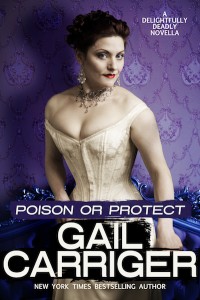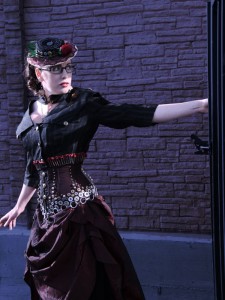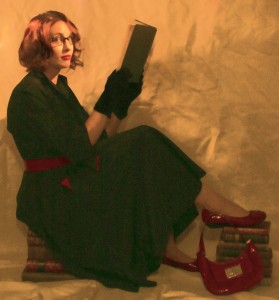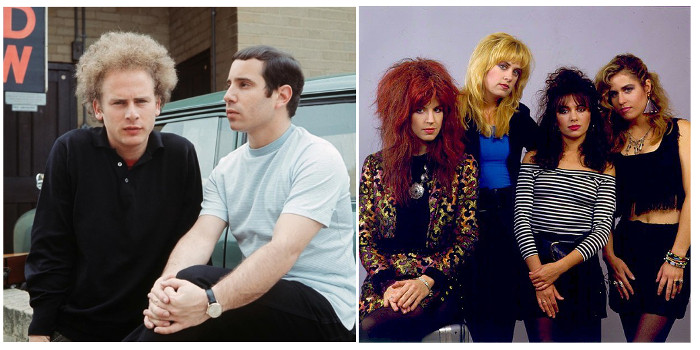
“Time, time, time, see what’s become of me…” When The Bangles covered Simon & Garfunkel’s A Hazy Shade of Winter in 1987, the song was 21 years and one month old, and now (January 2018) The Bangles’ version (from the underrated – according to me – movie of Bret Easton Ellis’ Less Than Zero) is 30 years and one month old; time flies, another year draws to an end etc etc etc. It took until the early 1990s for 60s nostalgia to really take hold and, true to form 30 years on from the 1980s, 80s nostalgia is everywhere; in music, in fashion and (especially) in film and television. Even the tired, terrifying old tropes of the cold war are back; excellent stuff.
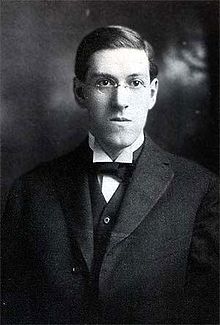 It’s approximately 90 years since HP Lovecraft wrote, “The oldest and strongest emotion of mankind is fear, and the oldest and strongest kind of fear is the fear of the unknown.” (in the essay Supernatural Horror in Literature (1926-7)), and it’s got to be something like 25 years or so since I first read those words (in the HP Lovecraft Omnibus Vol 2, Dagon and other Macabre Tales, Grafton Books, 1985, p.423 ). So what about it?
It’s approximately 90 years since HP Lovecraft wrote, “The oldest and strongest emotion of mankind is fear, and the oldest and strongest kind of fear is the fear of the unknown.” (in the essay Supernatural Horror in Literature (1926-7)), and it’s got to be something like 25 years or so since I first read those words (in the HP Lovecraft Omnibus Vol 2, Dagon and other Macabre Tales, Grafton Books, 1985, p.423 ). So what about it?
Lovecraft might well be right about fear; but more pertinent to my intro is that possibly the oldest emotion preserved in literature – at least (major, major caveat, based on my ignorance) in the literature of Europe – is nostalgia, and the feeling that things were better in the past. (see also here for an excellent & thoughtful look at nostalgia) The literature of the ancient Greeks makes clear that the age of heroes already lay in the distant past. The pride and arrogance of Imperial Rome was tempered – formally, at least – by the belief that it was a pale imitation of the Republic which the Empire supplanted. The earliest literature in (old) English makes it clear that the inhabitants of what was one day to become England were a) not entirely sure of what had come before, but b) knew that it was in many ways ‘better’ and certainly more impressive than the present day of the 8th century:
“The work of the Giants, the stonesmiths,/ mouldereth…
And the wielders and wrights?/Earthgrip holds them – gone, long gone”The Ruin, (Translated by Michael Alexander, The Earliest English Poems, Penguin Classics (3rd edition, 1991, p. 2)
Even closer to home (for me), the earliest literature of Scotland, the Goddodin of the poet Aneirin, does something similar. The poem dates from somewhere from the 7th to 10th century and is written in the ancient British language now called Old Welsh (which it is of course, but it is also, geographically, old English and old Scots, since it seems to have been spoken in a far wider area than modern Wales). The Goddodin is a series of elegies mourning the loss of the warriors of the eponymous ancient kingdom (which spread roughly over what are now the modern Scottish regions of Lothian and Borders) in battle, and with them the heroic culture of their era.*
*a perennial theme that crops up in a very similar form in the Fortinbras subplot of Shakespeare’s Hamlet, preserved at one remove from the earliest known version of the story, Saxo Grammaticus’ elemental/mythological 13th century version from his Gesta Danorum. But even this is assumed to be derived from an earlier, lost source, probably Icelandic.
To say that nostalgia as opposed to fear may be mankind’s oldest emotion is problematic. Logically it’s difficult (chicken/egg innit), but also, for all of its obvious dominant ingredients – sadness/regret and happiness – a large component of nostalgia can be fear, and, specifically, Lovecraft’s ‘fear of the unknown’ (in this case the always unknowable future). That’s problematic for many reasons. In the examples of nostalgia noted above, the glamour (not intended to have its old, magical meaning, but actually that’s probably even more appropriate) attached to the past is partly because it can’t come again. If the people of “now” were as noble, heroic etc as the people of “then”, then somehow the past and the ancestors – a vital component of the values of most non-Christian and pre-Christian cultures – are devalued and not receiving their due reverence.
Although it seems almost incomprehensible to someone of my generation, there seems to be a similar, ‘don’t disrespect the ancestors’ unease nowadays in some circles that’s manifested in an unwillingness to condemn wholesale the expansion/existence of the British Empire. And really, it’s not very complicated – it is entirely possible to be impressed by and/or grateful for the innovations of the Victorian era – flushing toilets, railways and whatnot – while also seeing the culture and times for what they were; repressive, oppressive, misogynistic, racist, ignorant. It shouldn’t be difficult, because it’s happened before. Christianity made it easy for previous ages to condemn the pagan empires of Rome, Greece, Egypt and co (and indeed the ancient Arabic civilisations) without abandoning the inventions and innovations of those same ‘decadent’ civilisations. Indeed, even at the height of Christian belief in Europe, interest in the cultures of the pagan empires remained high, even if Christian scholars felt the need to inflict a version of their own value system onto their researches. There’s no reason that people now shouldn’t be able to do the same with the ages we have left behind, or are hopefully in the process of leaving behind. Yes, good things come from bad cultures or societies, but not because of the bad, but just because (most) human beings are extraordinary.
In 2017 there seemed to be – as I suppose there always must be – an ever-increasing number of warring nostalgias and counter-nostalgias, the latest being for the Russian Revolution in 1917 – a violent event, with vast and oppressive consequences and therefore definitely negative, but like most revolutions, born of aspirations and ideals which are hard to dismiss. In fact, Dickens’ famous opening to A Tale Of Two Cities seems uncannily prophetic, because Dickens – as he explicitly realised – could see that human nature and human actions remain fairly constant:
“It was the best of times, it was the worst of times, it was the age of wisdom, it was the age of foolishness, it was the epoch of belief, it was the epoch of incredulity, it was the season of Light, it was the season of Darkness, it was the spring of hope, it was the winter of despair, we had everything before us, we had nothing before us, we were all going direct to Heaven, we were all going direct the other way – in short, the period was so far like the present period, that some of its noisiest authorities insisted on its being received, for good or for evil, in the superlative degree of comparison only”
I think it’s probably true that it’s always the best of times, for somebody, in some respect. It’s certainly always the worst of times for other people; which sounds complacent or at least fatalistic, but only if one doesn’t try in some way to improve things. This kind of impersonal nostalgia – for ‘better’ times – is, necessarily selective. (in fact, all nostalgia is, because perception is selective – hmm, it seems like this just started copying the thing about realism I wrote recently, but bear with me) and relies to a large degree on ignorance and/or self-deception in order to be nostalgia at all.
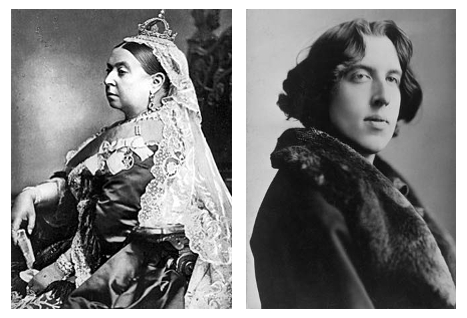
History isn’t really a subject, history is everything; people, peoples, cultures, societies, but, necessarily “history” as it’s taught, or absorbed through popular culture, filters and simplifies. That’s important, because when people in Britain talk nostalgically about ‘Victorian values’ you can (usually) assume that they don’t intend any reference to the exploitation and subjugation of untold millions of people, child prostitution and child labour, the life expectancy of the average Victorian person etc. And, as always, history is more complex than its popular image. The Victorian era may be symbolised for British people by the building of railways or the expansion of the Empire, or by Jack the Ripper, or Queen Victoria being unamused, or by the establishment’s treatment of Oscar Wilde; but it was also the era that produced and shaped Jack the Ripper, Queen Victoria and of course, Wilde himself, as well as the whole decadent movement. Interestingly, Sigmund Freud was only two years younger than Wilde; an apparently value-free but perhaps significant observation.
 This kind of complexity is what makes history more interesting than it’s sometimes given credit for. The Scottish Enlightenment was a wonderful, positive, outward-looking movement, but it coexisted in Scotland with a joyless, moralising and oppressive Calvinist culture. Time and nostalgia have a way of homogenising peoples and cultures. The popular idea of ancient Rome is probably one of conquest, grandeur and decadence, but what is the popular idea, if there is one, of ‘an ancient Roman’? Someone, probably a man, probably from Italy, in a toga or armour; quite likely an emperor, a soldier or a gladiator, rather than say, a merchant, clerk or farmer. But even within this fairly narrow image, a complex figure like the emperor Elagabalus (who was Syrian, teenage, possibly transgender) defeats the obvious school textbook perceptions of ‘Roman-ness’ (as, perhaps, it did for the Romans themselves). Even in our own time, the fact that older generations from the 60s/70s to the present could lament the passing of times when ‘men were men & women were women’ etc is – to say the least – extremely disingenuous. Presumably what they mean is a time when non-‘manly’ men could be openly discriminated against and/or abused and women could be expected to be quiet and submissive.
This kind of complexity is what makes history more interesting than it’s sometimes given credit for. The Scottish Enlightenment was a wonderful, positive, outward-looking movement, but it coexisted in Scotland with a joyless, moralising and oppressive Calvinist culture. Time and nostalgia have a way of homogenising peoples and cultures. The popular idea of ancient Rome is probably one of conquest, grandeur and decadence, but what is the popular idea, if there is one, of ‘an ancient Roman’? Someone, probably a man, probably from Italy, in a toga or armour; quite likely an emperor, a soldier or a gladiator, rather than say, a merchant, clerk or farmer. But even within this fairly narrow image, a complex figure like the emperor Elagabalus (who was Syrian, teenage, possibly transgender) defeats the obvious school textbook perceptions of ‘Roman-ness’ (as, perhaps, it did for the Romans themselves). Even in our own time, the fact that older generations from the 60s/70s to the present could lament the passing of times when ‘men were men & women were women’ etc is – to say the least – extremely disingenuous. Presumably what they mean is a time when non-‘manly’ men could be openly discriminated against and/or abused and women could be expected to be quiet and submissive.
Similarly, throughout my life I have heard people – and not only right-wing people – talk about the economic success that Hitler brought to Germany. But you don’t have to be the chairperson of a financial think-tank to see that a programme of accelerated militarism that requires war in order to function isn’t really a viable economic model for anyone who doesn’t espouse the ideology of Nazism or at least some kind of Imperial expansionism. But people seemingly want to believe that if it wasn’t for all those pesky Nazi faults Hitler could have been a great leader. He couldn’t, though, because he was a real person, his beliefs were inseparable from everything he did and he really did exist and do the things he did and therefore wasn’t a great leader.
As I’ve said too many times already, history is complex, but nostalgia is too. It’s impossible to express in a single word other than itself, though interestingly, its original Greek meaning (‘homecoming pain’) is actually more specific than the word itself has come to be in English. Possibly because of this hard-to-express quality, most European languages tend to use variations of the word ‘nostalgia’ rather than having a word of their own with the same meaning. But despite that complexity, it tends to have a simplifying quality.
The reason for that simplifying is because, for many people, nostalgia equals safety. Political reactionaries always look to the past for examples of stability and they’ll always find them – but that stability is an illusion, caused by the fact that the past itself is stable, but only in the one sense of being unchangeable. And until the invention of the time machine it will remain unchangeable – but even so, through endless re-interpretations, re-evaluations and new points of view, the picture we have of it fluctuates almost daily. I think it’s fair to assume that (as Dickens implied) every ‘golden age’ masks a dark age but the temptation to look at the past fondly is hard to resist. It often seems otherwise, but people are, by and large fairly positive and want to look back with fondness, even if it’s a melancholy fondness. And the result of that is a softening and distancing of the darker aspects of history. A quote from the great Scottish singer/songwriter Alex Harvey strips away the soft-focus effect that the distorting lens of nostalgia puts on the past:
“Nobody ever won a war. A hundred thousand dead at Waterloo. No glory in that. Nobody needs that.” (quoted in Charles Shaar Murray’s Shots From The Hip, Penguin Books, 1991, p.71)
Numbers aside, that seems indisputably true; but evidently it isn’t, because people are entirely capable of being nostalgic about almost any negative event. ‘The Blitz Spirit’ is remembered fondly in Britain, because the few people still alive who remember it survived it, and because it happened decades ago and bombs are no longer raining down on the UK. Cinema and television is full of nostalgia for even the darkest times, largely because people are supposed to be entertained by these things and structures, stories and likeable characters are imposed on the past to make it controllable and enjoyable. And that’s just as true for the harrowing ‘war is hell’ type of film as it was for The Dirty Dozen and just as true of the revisionist ‘elegiac’ Western as for the old John Wayne kind. The revisionist Westerns tend to focus on the dying days of the ‘old West’ in grimly realistic detail, but while barely acknowledging the genocide and horror that is the real historical backdrop of the period. In a way, that’s fair enough – those stories are not about that subject – but when there are not only no (or very few) films about that subject, and it is barely even acknowledged by ‘official’ narratives of taught history, it’s a stark and telling omission.
It’s my personal feeling that nothing truly good is produced by adversity, or at least that if it is, that doesn’t offset what may have been lost. Which isn’t to deny that people are amazing, resourceful, resilient and inspiring; they are. If every golden age masks a dark age, it’s probably true too that every dark age is shot through with some elements of positivity, although I won’t scrutinise that statement too closely. Countries which were colonised by the British Empire (or indeed any empire) manage to grow and assert their independence and define their own cultures, which is good; but we can never know what or who was lost when their histories were derailed.
I love blues music (and indeed the whole phenomenon of western popular music which mostly grew from it), but again; we can never know what would have been, or what would exist now, had those creative energies not been re-directed by a couple of hundred years of slavery and exploitation. Individuals are capable of achieving almost superhuman feats of bravery and resourcefulness when facing adversity; escaping from abusers and kidnappers, rescuing people from disasters etc. But no-one in their right mind would – I hope – recommend that young people undergo these kinds of ordeals in order to fully achieve their potential.
I don’t think it’s particularly useful for individuals (although governments and institutions are a very different thing) to feel guilty about the deeds of the people of the past (or to be proud of the achievements of the past, really), but I also see no need to pretend that – for example – because India has a big railway network, the British Empire did something positive by oppressing the country’s people and culture and stealing its resources. Countries that weren’t colonised by the UK or Belgium or France or Russia have railways too. Nothing good came of the British in India. India survived anyway, just as people survive catastrophes everywhere and achieve amazing things in doing so. But you don’t celebrate an earthquake because people survive it and thrive afterwards.
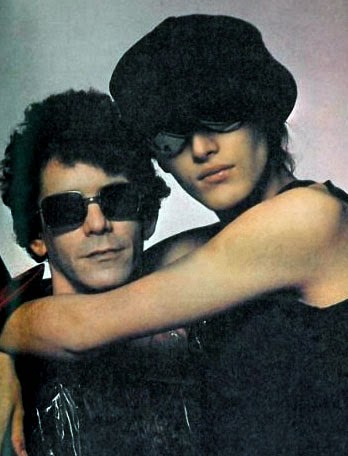
So much for impersonal nostalgia – the personal kind is in many ways very similar, if less destructive. I’ve always been a nostalgic person; both for things I don’t remember, or that were long before ‘my time’ (you name it; silent movies, the 1960s, the Weimar Republic, Hong Kong cinema of the 70s, the Northern Renaissance, the Scottish Enlightenment, 80s teen movies) and, more naturally perhaps, for things within own experience. One of the things that initially made me write this was a reference in Anthony DeCurtis’ biography Lou Reed – A Life (John Murray, 2017)* about Reed’s 70s partner/muse Rachel, a fascinating figure who seems to have vanished into history. In Googling her I discovered various sites about vanishing/vanished aspects of New York and, because old photographs are endlessly fascinating, somehow segued from that to the vanished Jewish East End of London and the vanished and vanishing everything of everywhere. But if the Jewish East London of the 1960s and the underbelly of 70s New York are irretrievable, then so is one’s own childhood, not that one wants to retrieve it, exactly.
* It’s an excellent book, but one which illustrates some of my points; Lou Reed spent most of his adult life complaining about his conservative 1950s childhood, but DeCurtis himself has a more rose-tinted view of the period, saying “In stark contrast to the identity politics of today, assimilation was the order of the day…and none of Reed’s friends, Jewish or not, recall incidents of anti-Semitism or bias” (p.14) – fair enough you would think, except that just 22 pages later he also says, ‘Richard Mishkin was a fraternity brother of Allan Hyman’s in Sigma Alpha Mu, a so-called Jewish fraternity because at the time Jews were not permitted in many other fraternities.” (p.36)
Most of the polaroids etc that make up the ever-browsable (later note; but sadly diminished) Internet K-hole appear to be American, but any child of the 80s will recognise the texture and aura of the era we grew up in. When George Orwell wrote (I think in The Lion and the Unicorn, but I might be wrong; I’ll check) – “What have you in common with the child of five whose photograph your mother keeps on the mantelpiece? Nothing, except that you happen to be the same person” he was putting his finger on one of the strange paradoxes of culture, heritage and nostalgia. The memories I have of the 1980s are made up of a distorted, child’s-eye view of events and culture which is truly mine, plus things I know now that I didn’t know then, plus other peoples’ memories, TV and films. The most potent sources of nostalgia seem to be – as the makers of shows like Stranger Things and Dark, and films like Super 8 and (too many to list) are very aware – the things you didn’t notice that you had noticed, the most ephemeral details; jingles from adverts, fonts, packaging, slang.
 It’s an interesting point. The fleetingness with which you experience things has nothing to do with their power as memories. I have no idea what the first horror film I saw was, but I do know that a scene on some TV show where skinheads (or possibly a single skinhead) glued a man’s hands to the wall of a lift/elevator scared me as a child and stayed with me for a long time. Maybe that was because I used to see skinheads around on the streets (you had to watch the colour of the laces in their Doc Martens to see if they were ‘bad’ skinheads or not – though they were probably kids too, I now realise). I also know now (but didn’t then) that these were the second wave of skinheads, which is why I also saw Oi! written on various walls around the town; at the time I don’t think I ever made the connection. Again, when one thinks of the impact of very small occurrences it shows how impossible a really objective view of history is. I no longer bear any high school grudges, but without really thinking about it, there are many small and/or random sneers and insults from my youth that have stayed with me in vivid detail, along with the people and places involved. Similarly (but nicer) I will eternally feel grateful to two beautiful black girls in Camden in (I think) 1990 or 91 who made remarks to me which, even at the time were ‘not politically correct’ but which pleased me immensely; it is among the very few teenage memories that boosted rather than eroded my confidence. A tiny thing, barely even an ‘incident’, but a big deal to a painfully shy adolescent. What to make of such a minor, slightly embarrassing episode? I can still vividly remember – although it was not a rarity – my whole face burning when I blushed. People often remarked on the redness of my blushes and I remember – not even slightly nostalgically – being compared to a tomato, being told I looked like I would ‘burst’ etc at high school. And thinking about it, there’s no real conclusions to draw from that memory except that real nostalgia, unlike the nostalgia industry (“it was the 70s: Buckaroo!“, to quote Alan Partridge) is particular, not general. The Camden episode includes references to youth, gender, race etc, but it has nothing important to do with any those factors and I doubt if the two girls remembered it even days later. These are not the kinds of incidents which are worthy of a biographer’s attention; but they define my youth every bit as much as the music I listened to, the sweets I remember that no longer exist, or the clothes I wore.
It’s an interesting point. The fleetingness with which you experience things has nothing to do with their power as memories. I have no idea what the first horror film I saw was, but I do know that a scene on some TV show where skinheads (or possibly a single skinhead) glued a man’s hands to the wall of a lift/elevator scared me as a child and stayed with me for a long time. Maybe that was because I used to see skinheads around on the streets (you had to watch the colour of the laces in their Doc Martens to see if they were ‘bad’ skinheads or not – though they were probably kids too, I now realise). I also know now (but didn’t then) that these were the second wave of skinheads, which is why I also saw Oi! written on various walls around the town; at the time I don’t think I ever made the connection. Again, when one thinks of the impact of very small occurrences it shows how impossible a really objective view of history is. I no longer bear any high school grudges, but without really thinking about it, there are many small and/or random sneers and insults from my youth that have stayed with me in vivid detail, along with the people and places involved. Similarly (but nicer) I will eternally feel grateful to two beautiful black girls in Camden in (I think) 1990 or 91 who made remarks to me which, even at the time were ‘not politically correct’ but which pleased me immensely; it is among the very few teenage memories that boosted rather than eroded my confidence. A tiny thing, barely even an ‘incident’, but a big deal to a painfully shy adolescent. What to make of such a minor, slightly embarrassing episode? I can still vividly remember – although it was not a rarity – my whole face burning when I blushed. People often remarked on the redness of my blushes and I remember – not even slightly nostalgically – being compared to a tomato, being told I looked like I would ‘burst’ etc at high school. And thinking about it, there’s no real conclusions to draw from that memory except that real nostalgia, unlike the nostalgia industry (“it was the 70s: Buckaroo!“, to quote Alan Partridge) is particular, not general. The Camden episode includes references to youth, gender, race etc, but it has nothing important to do with any those factors and I doubt if the two girls remembered it even days later. These are not the kinds of incidents which are worthy of a biographer’s attention; but they define my youth every bit as much as the music I listened to, the sweets I remember that no longer exist, or the clothes I wore.
My particular 80s nostalgia has less to do with “the 80s” in the sense it that it appears in TV shows and films as it does a litany of gloomy-sounding things: the urban decay of 60s and 70s council estates, indoor markets, army stores, arcades, brutalist churches that harmonised with those reinforced concrete towers that the fire brigade used for practise. This is a kind of eeriness as nostalgia; reflected in my liking for empty streets and art that represents empty streets: Algernon Newton, Maurice Utrillo, Takanori Oguiss , the photography of Masataka Nakano and taken to its extreme, Giorgio de Chirico, where the emptiness isn’t truly vacant so much as it is pregnant , reminding me always of – nostalgia again – the ruined city of Charn in CS Lewis’ The Magician’s Nephew (by far my favourite Narnia book) – which made a huge impression on me as a child. Charn may even be where my liking for such things as ‘urbex’ photography, like that of Andre Govia, and of course, The Ruin, quoted way back in the first paragraph, comes from.
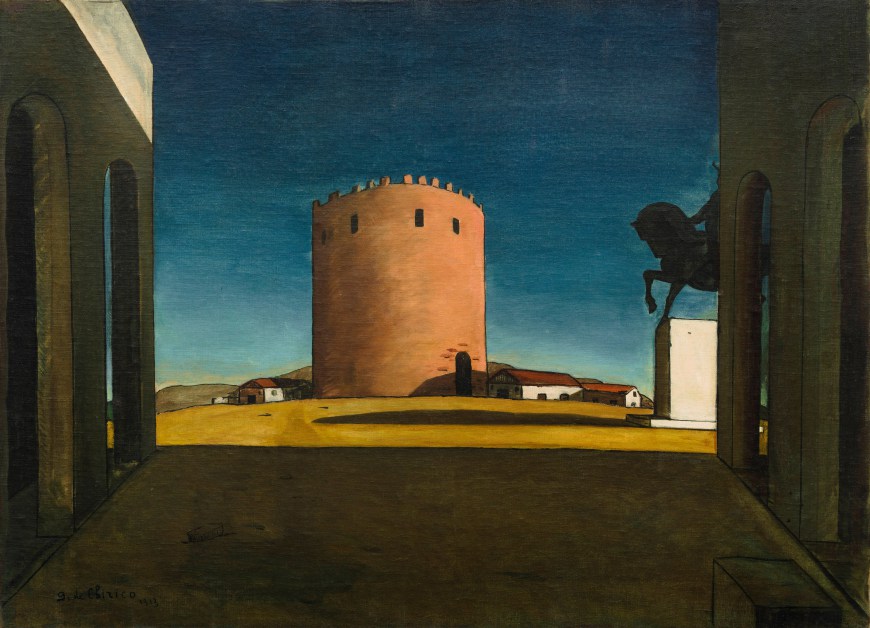
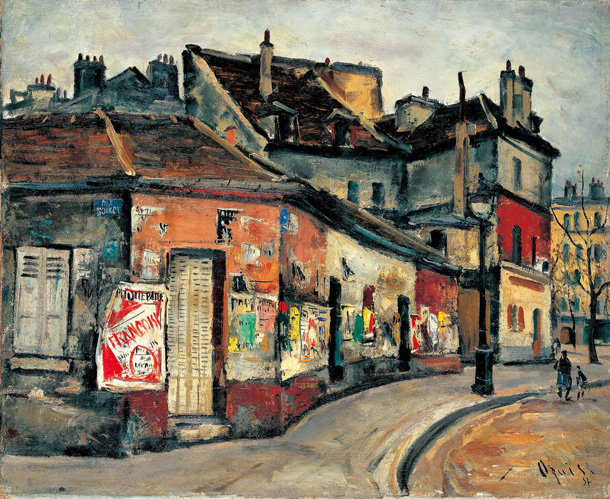
“The passing of time and all of its crimes, is making me sad again” – sadly, one of those crimes is that when I first heard that line (from Rubber Ring by The Smiths) in 1989 or thereabouts, Morrissey seemed to be on the side of the downtrodden and marginalised, whereas now he seems to be one of that increasing number of people who pretends that the mainstream of British culture is itself somehow being marginalised; which is not only patently ridiculous but impossible – and nostalgic, of course.
There’s a whole culture industry with its own cultural shorthand that has been constructed to bolster the standardised view of any given period. Nowadays, there’s whole genre of TV shows where any decade can be summed up by some B-list cultural commentator or celebrity (often not old enough to remember what they are “remembering”) saying “He/she/it were mad, weren’t they?” about some figurehead of the era. Not so great of course, when that figurehead turns out to be Jimmy Savile or Rolf Harris, at which point even nostalgia, like history, has to be revised.
The beauty of all nostalgia is that it’s selective. The 70s that Morrissey seems to feel nostalgic about (in the true, mixed feelings sense; witness the whole of Viva Hate, which I love) wasn’t ‘better’ than nowadays, but the writer of its songs was young then; he isn’t now. There are younger people who are also nostalgic about the 70s, or the 80s, because they see the partial versions of those era(s) preserved by those who were there then, or who pretend to have been. The people who mourn the loss of the blitz spirit are really no different from me wishing I’d seen the Beatles. The people who are nostalgic for the Empire will (hopefully) never have to deal with being in charge of a mass of powerless, subject people whose resources they are stealing (or be the subject of the same), but they can enjoy the things that Empire brought to all of our lives. The ‘glory’ of Empire, like the mythical ages of Greece and Rome, and the giants that the Anglo-Saxon poet pondered over, only exists now as the faded, distorted memory of a faded, distorted memory. Like the 70s, like the 80s, like the 2010s, like yesterday, they are wonderful and terrible because they can never come again.
Happy New Year!
A note on the text above: throughout this article (and many others) I refer to ‘people’ and ‘humankind’ in what is intended to be an inclusive kind of way, referring to people of all races, genders or indeed lack of gender. I probably also refer to gender in a binary sense, partly due to context, partly no doubt through laziness. However, I do have a tendency to not use the term ‘cis’, unless absolutely necessary – for me personally, the word ‘women’ includes trans women and the word men includes trans men. I don’t intend any offence by this, but I also don’t really mind if anyone is offended. I think it’s a shame that something as basic (if not simple) as a person’s gender should be a matter of opinion, but so it seems to be. My own view is that the contents of someone’s underwear is none of my business unless they explicitly make it so.

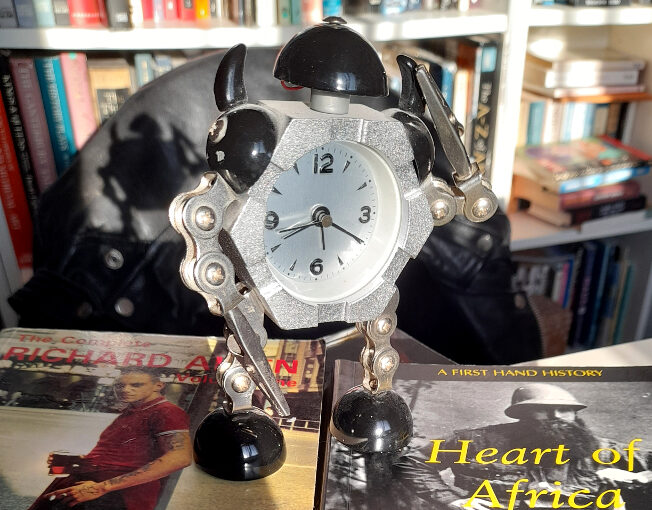

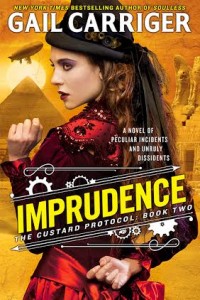
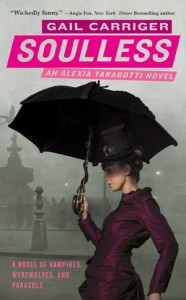 Soulless wasn’t Dawson’s Creek with vampires; the supernatural characters were, as with most modern/post-modern fiction, given a similar complexity to their human counterparts, but Carriger goes further, weaving the supernatural/natural worlds together in an ingenious yet extremely logical and historically-informed way. Part of what makes this so successful is that she placed her characters in a parallel version of the Victorian era, creating a society where vampires and werewolves, without sacrificing their predatory nature, exist alongside their mortal contemporaries as yet more finely nuanced layers in the already-complicated social hierarchy of Victorian Britain. If the Victorian era represents the height of the British preoccupation with social class and proper manners, these become even more crucial in Carriger’s world, where the correct way to interact with social superiors/inferiors includes people, possibly on both sides, whose politeness is the only thing preventing them from drinking your blood/eating you.
Soulless wasn’t Dawson’s Creek with vampires; the supernatural characters were, as with most modern/post-modern fiction, given a similar complexity to their human counterparts, but Carriger goes further, weaving the supernatural/natural worlds together in an ingenious yet extremely logical and historically-informed way. Part of what makes this so successful is that she placed her characters in a parallel version of the Victorian era, creating a society where vampires and werewolves, without sacrificing their predatory nature, exist alongside their mortal contemporaries as yet more finely nuanced layers in the already-complicated social hierarchy of Victorian Britain. If the Victorian era represents the height of the British preoccupation with social class and proper manners, these become even more crucial in Carriger’s world, where the correct way to interact with social superiors/inferiors includes people, possibly on both sides, whose politeness is the only thing preventing them from drinking your blood/eating you.